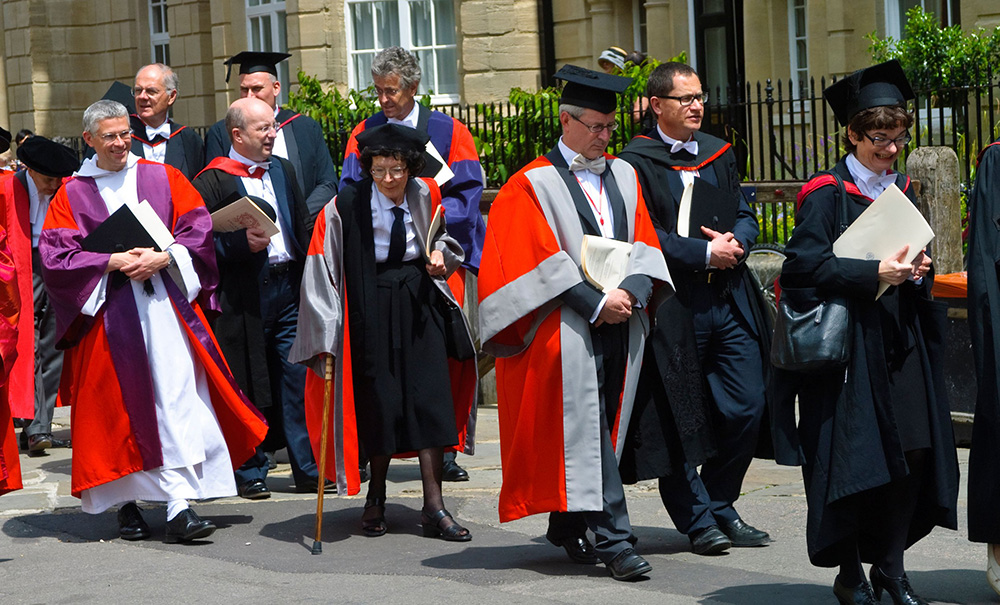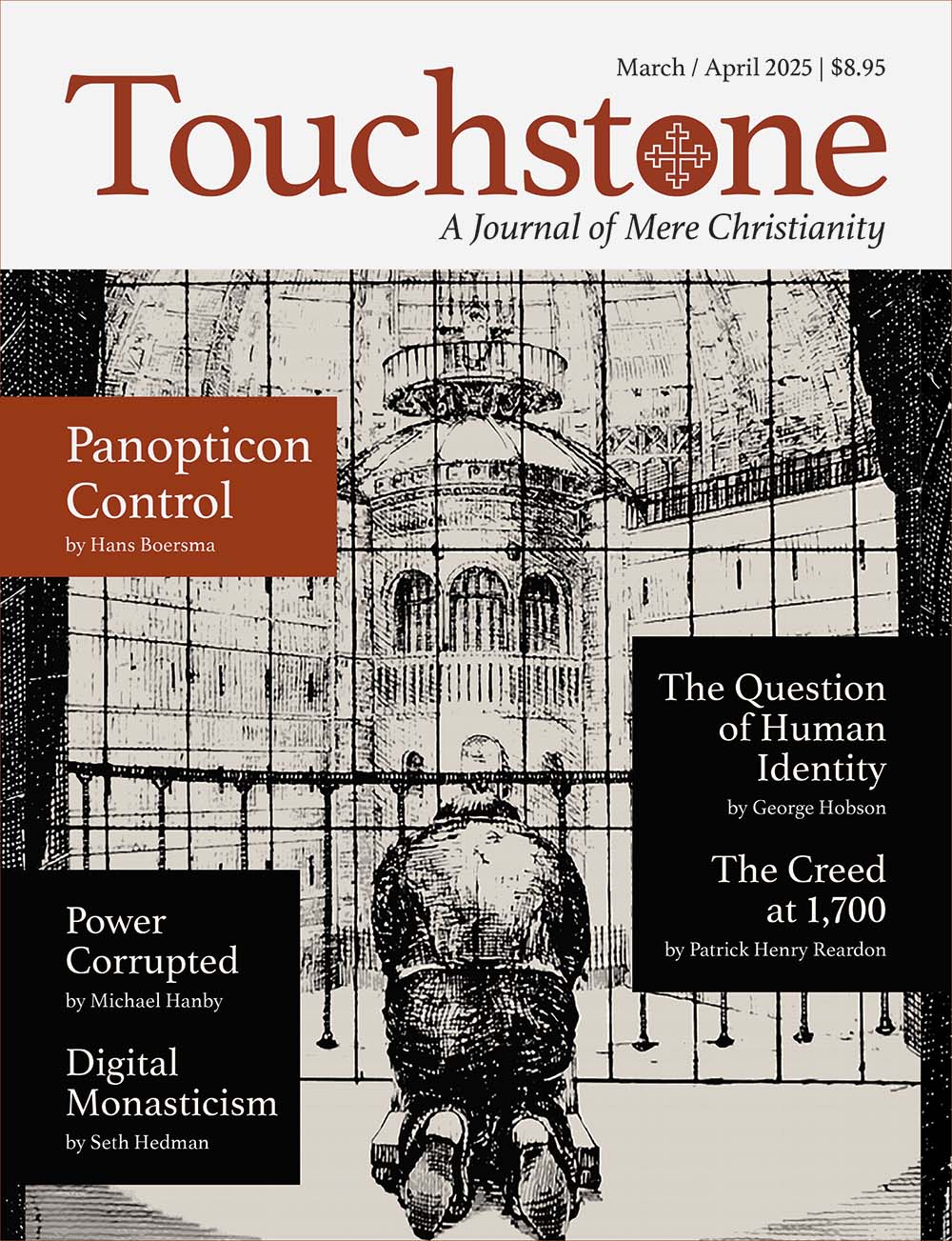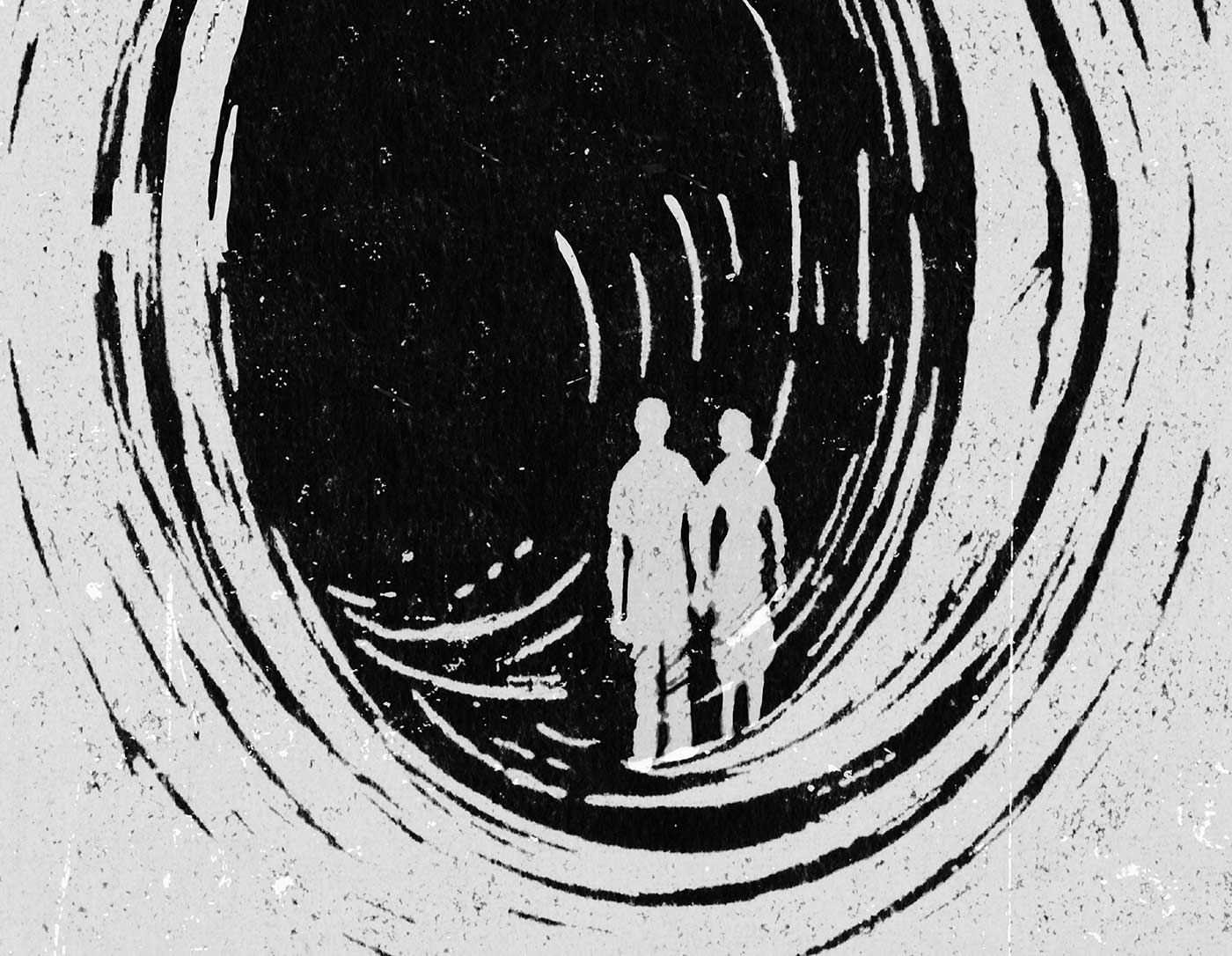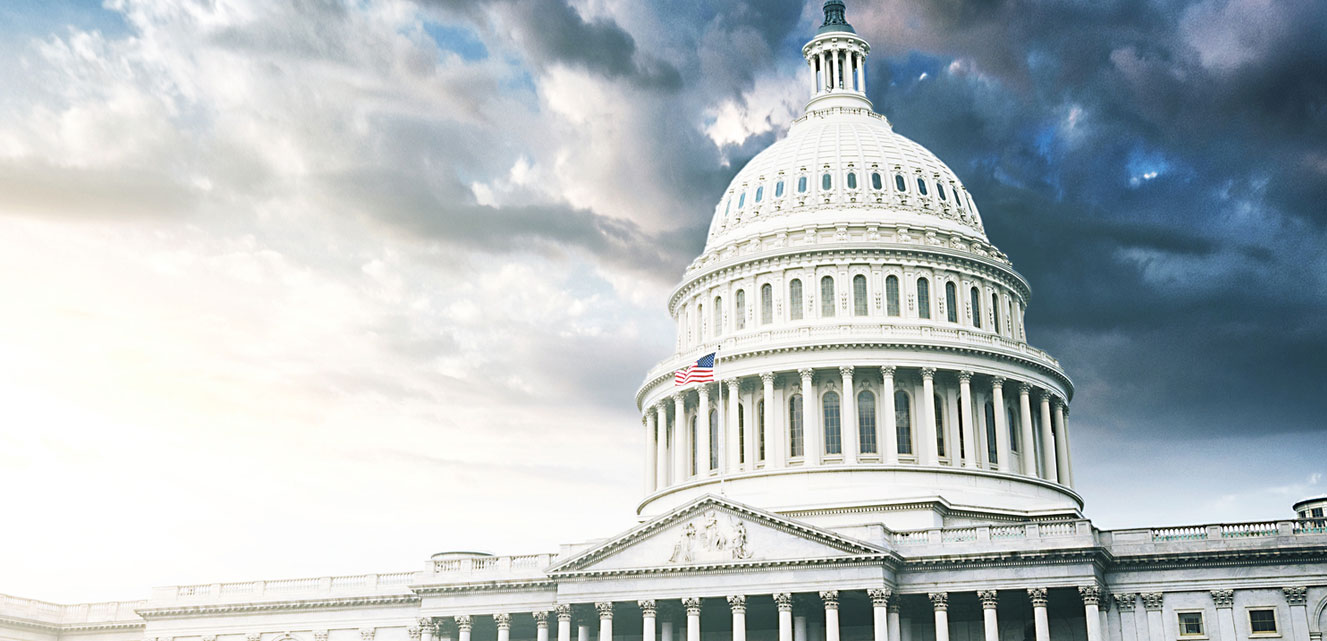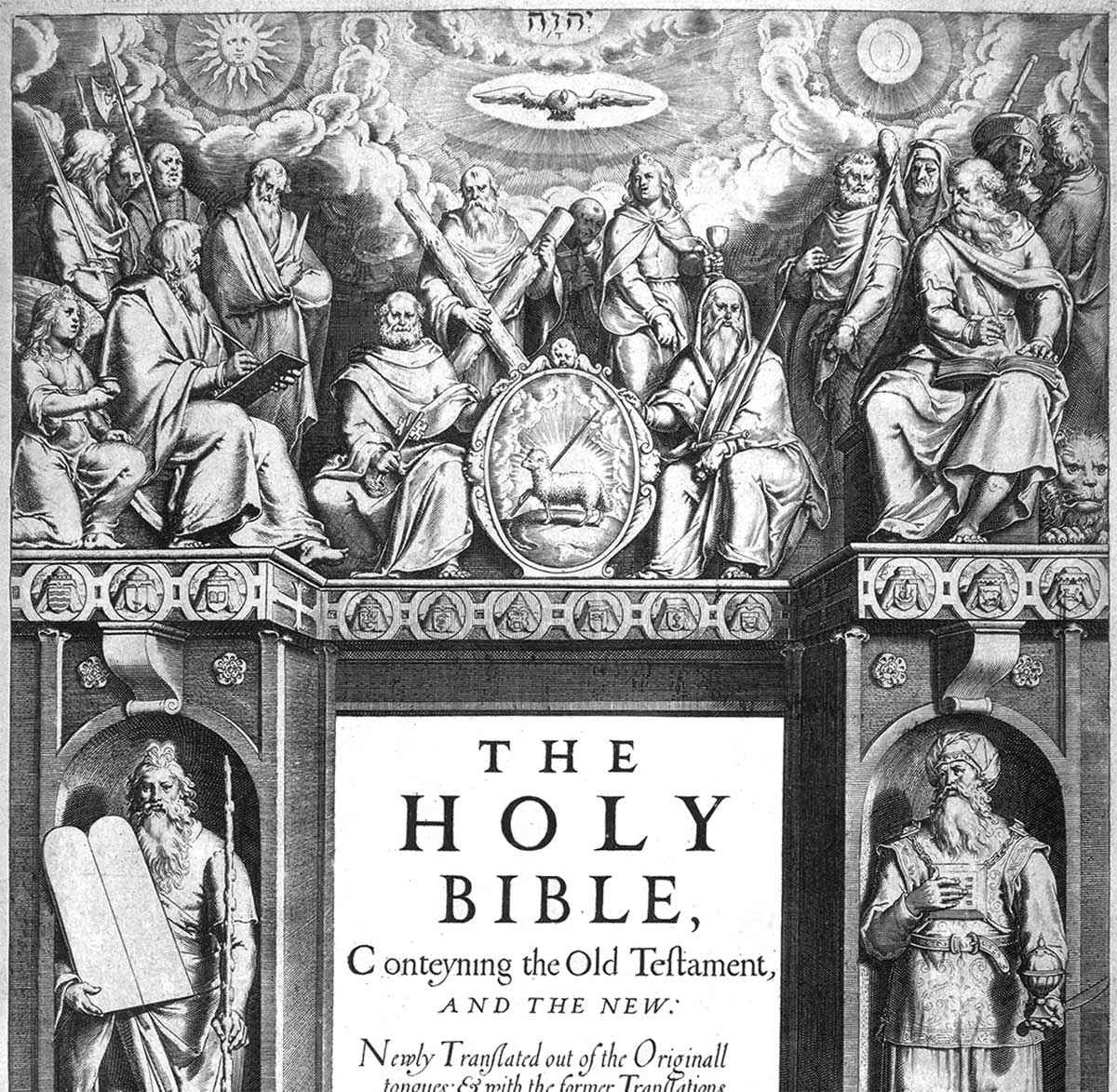Science Disrobed
The Misuse of Scientific “Authority” for Utopian Ends
Have you ever wondered why, whenever academics gather for formal events, they wear medieval robes with hoods and strange hats? This academic regalia has
been worn since the eleventh century and represents the clothing of the first professors in medieval Europe (Oxford, Bologna, Paris, etc.). Those first professors wore clerical garb because they were priests. Later, as non-priests were added to their ranks, they, too, wore medieval priestly attire. One presumes this is because they wished to be identified with priestly authority.
Some scholars working in the sciences today act as if they had priestly authority. In 1965, Ralph Lapp wrote a book entitled The New Priesthood, in which he expressed concern regarding the rising power of a scientific class. He warned: “If technology is so enticing that society is powerless to resist its charms, then it can become the Great Dictator of our times. There is a real danger that science—and its rampageous offspring technology—may become a modern Moloch if not brought under control.” He continued:
If society abdicates to the scientists, or if there is no effective dialogue, then the focus of decision will be upon the scientists. Their value judgments will be imposed on society. . . . To say that science seeks the truth does not endow scientists as a group with special wisdom of what is good for society.
Lapp’s concern about this new priesthood of scientists, or those pretending to speak for science, is more valid today than it was in 1965.
The Conflict Between Science & Religion
Animosity between scientists and the Church is not new. I often get invited to give talks on college campuses addressing the topic, “How can one be a Christian and a scientist?” because there is a perceived conflict between the two. Let’s begin with some historical background.
In some circles in the late nineteenth century, it was commonplace to say that science was the new religion and that Christianity had been replaced. John William Draper described how Christians, especially Catholics, were standing in the way of science when he published his book, History of the Conflict Between Religion and Science, in 1874. Draper was a reputable scientist: he founded the NYU School of Medicine and was president of the American Chemical Society. Speaking of the great advancements of science in the 1800s, he warned that people of faith were calling for a return to the “semi-barbarian ignorance and superstition of the middle-ages.” He concluded:
Religion must relinquish that imperious, that domineering position which she has so long maintained against Science. There must be absolute freedom for thought. The ecclesiastic must learn to keep himself within the domain he has chosen, and cease to tyrannize over the philosopher, who, conscious of his own strength and the purity of his motives, will bear such interference no longer.
Others wrote similar screeds. In 1896, Andrew Dickson White, president of Cornell, wrote the two-volume History of the Warfare of Science with Theology in Christendom. Here he asserted what came to be known as the “conflict thesis” of science against the “dogmatic theology” of Christianity. In 1918, German sociologist Max Weber proclaimed the “disenchantment of the world.” He argued that scientific understanding was more highly valued than belief, and that the modern, secular Western world was oriented toward rational goals, as opposed to traditional society, in which “the world remains a great enchanted garden.” He further stated that only “certain big children” still had reservations about the triumph of science over religion.
Given these assaults on the faith, one might wonder how quickly Americans lost their faith. Well, let’s look at the state of things about a hundred years after such proclamations. A 2003 Harris poll showed that 90 percent of American adults believed in God. In 2005, Gallup pollsters found that the number of Americans who agreed with the statement, “Man has developed over millions of years from less advanced forms of life [and] no God participated in this process” was 12 percent. Not surprisingly, scientists in the population might be expected to answer differently. When scientists were asked in 1916 if they believed in God, 40 percent said yes. A similar survey in 1997, published in Nature, showed that an identical 40 percent of American scientists were believers.
Such surveys show that faith didn’t collapse in response to “scientific” criticism and may not even have been affected by it at all. I suggest there are other matters that led to a decline in faith.
Take Dr. Draper, for example. His book has not stood the test of time. That is because he was a terrible anti-Catholic, and his “history” book was full of outrageous factual errors. It was not Darwin or scientific truths that led him away from faith. It turns out that his bigotry was more likely due to anger with his sister, who became a nun. Similarly, Charles Darwin himself lost his faith not over his work on evolution, but, according to historian Ronald Numbers, because of the deaths of his father and young daughter, whom he argued a loving God would not have taken from him.
Going back to those surveys, one might argue that I am citing data from two decades ago and that things have changed recently. I am not a sociologist and don’t want to address areas in which I am not qualified, but I will say this. While Christianity may well be declining, I do not see trust in advancing science as filling the void. If anything, it is declining as well. Shockingly, it is not difficult to find people who argue that math is racist and so should not be taught. There is a sharp rise in belief in UFOs and psychic and paranormal phenomena. Many believe in alternate universes. Others can no longer differentiate between a man and a woman.
The decline we see is not just in faith in God, but also in faith in science and in our culture at large.
Problems with Reproducibility & Proof
To address this, let’s first examine to what extent belief in “science” is justified.
In 2016 an article appeared in the journal Nature entitled “Is There a Reproducibility Crisis?” In that paper, Monya Baker asked scientists if they had ever tried to reproduce published experimental results. Many responded that they had, but had failed to reproduce the published results. The failure rate varied by discipline, with failures of reproducibility in the field of chemistry being worst, over 85 percent. The field that ranked best, earth and environmental sciences, had a failure rate of just over 60 percent, which is still impressively poor. Authors were also asked if they’d had success trying to reproduce their own experiments. As might be expected, the failure rate was lower but far from zero (chemistry’s was 65 percent, EES’s 40).
If scientific studies are not reproducible, then are their results meaningful?
In 2013, Jonathan D. Schoenfeld and John Ioannidis published a paper entitled “Is Everything We Eat Associated with Cancer? A Systematic Cookbook Review,” in the American Journal of Clinical Nutrition. In that paper, they examined studies on cancer-causing foods. They found twenty foods that had each been the topic of over ten published studies related to its association with cancer. For most of the foods, different studies had demonstrated that they caused cancer and improved its prevention. For example, eggs were shown to cause cancer in six studies and to prevent cancer’s growth in four studies.
Furthermore, the organs affected by each food varied from study to study, as did the beneficial effects. While some foods might be shown to cause breast cancer, other studies might show that the same food caused lung cancer or diminished risk of gastrointestinal cancer. Schoenfeld and Ioannidis concluded that cancer risks or benefits were claimed for most foods, even though the evidence was weak. The overinterpretation of the results of the studies led to contradictory dietary guidelines for cancer prevention.
That cancer study followed a previous paper from Dr. Ioannidis published in PLoS Medicine in 2005 entitled “Why Most Published Research Findings Are False.” Ioannidis is a leading professor of medicine at Stanford, with appointments in the Departments of Statistics, Biomedical Data Science, and Health Research & Policy. This paper showed how poor uses of statistics are very common in scientific papers and lead to incorrect conclusions such as false positives. He argued that some studies are false due to fraud, the perceived need to publish to get tenure, or the desire of the journal to publish “hot” topics without careful review. Others are false due to small sample size or weak experimental design.
In 2018, Dr. Ioannidis published an article in JAMA entitled “The Proposal to Lower P value Thresholds to 0.005.” Here he argued that scientists should require greater statistical confidence in their results.
Most people think that science is about the discovery of truth. This is not so. I have not read a scientific paper published in the past forty years that claimed to definitively prove any scientific truth. Modern science, in practicality, is about statistics and probabilities. Most scientific studies aim to show that the hypotheses postulated are true with 95 percent statistical confidence. Of course, 95 percent is completely arbitrary—a number pulled out of a hat. Nevertheless, that number is widely used.
The problem with “proving” a hypothesis with 95 percent statistical confidence is that it is subject to many errors. If a scientist performs one test and it corresponds to his hypothesis, then he might claim that he has demonstrated it with 100 percent confidence. That is a problem of having too small a sample. Respectable journals would not allow such studies to be published. But there are other sources of potential error, as Ioannidis pointed out. In his JAMA paper, he argued that scientists should be looking for 99.5 percent confidence if they wish to have meaningful results. That is, 0.5 percent error instead of 5 percent error—reducing the chance of a false positive by ten times. I have not encountered any scientist willing to adopt that threshold, as most know they would no longer have anything to write about. It would stop much of modern science in its tracks.
Of course, this implies that most of the findings of modern science are false.
This is why we have seen scientific papers in the past three years showing that masks prevent the spread of Covid and that masks are impotent against it. We read that ivermectin is a good treatment for Covid and that it is bad. We read that Covid vaccines prevent one from getting Covid and that they are ineffective and may even make contraction of the virus more likely. All these thoughts represent results from scientific studies and, as with the studies on cancer-causing foods, the truth is often difficult to discern.
Debate & Discernment
For the past decade, I have taught a course to Ph.D. students in which we read and critique journal articles in the field. Each student presents one assigned paper per class and argues whether he thinks it good or bad; that is, I ask each student whether or not he is convinced that the paper proved its point. I include many papers that I know are terribly flawed to see if the students can figure that out or if they will blindly believe what appears in print. Hopefully, by the end of the semester, the students have learned a bit about how to discern good science from bad and have become more skeptical about what appears in scientific journals. This is how science is to be done—not by treating published works as gospel truth, but by challenging everything and making the authors convince you that they have found something new.
Science is about debate and the presentation of arguments in favor of one’s hypotheses. If enough studies eventually confirm a hypothesis, it begins to be accepted and put into practice. That doesn’t mean the hypothesis has been proven, just that it has been accepted by many. And even widely accepted hypotheses can be terribly wrong. For example, Portuguese neurologist António Egas Moniz won the Nobel prize in medicine in 1949 for supposedly discovering the therapeutic value of lobotomies, which became a mainstream procedure for treating psychiatric problems for well over a decade. Other popular but discredited scientific opinions are numerous, ranging from the entire field of phrenology as an indicator of personality traits to the use of thalidomide as a treatment of morning sickness. Modern “science” is full of missteps, which generally occur when investigators cease to question popular opinions or close their eyes from looking in different directions.
Contrary to popular opinion, there are no laws in science stating that an accepted hypothesis cannot be proven wrong. Einstein clearly showed that Newton’s “law” F=ma is wrong on small scales because E=mc2 becomes the governing equation. I like to think of such “laws” as descriptions of the way God generally does things to the best of our knowledge.
So how does science decide what is true? Of course, that is a silly question. It implies that there is some anthropomorphic being with a single mind called “science” that can make decisions. Einstein once said, “It is difficult even to attach a precise meaning to the term ‘scientific truth.’” There is also precisely no one who can speak on behalf of “science,” despite the proclamations of Dr. Fauci. When most scientific organizations publish position papers, they generally do so with a dozen or so authors, not a vote of the membership. When clinical organizations provide guidelines, they issue them from the leadership boards, and those who seek leadership positions are often not the best and brightest scholars but those interested in institutional politics. Hence, when the American Academy of Pediatrics issued a policy statement in support of “transgender youth,” it came from the AAP president alone, not from the votes of the 67,000 pediatrician members. The president’s statement made no mention of any scientific research findings—it was just a denouncement of conservative views. The AAP and its ilk are best thought of as trade organizations, like the AARP, which also supports left-wing politics and claims to speak for all retired people in the country. Such organizations ought not to be thought of as trusted sources of scientific opinion.
Politics & Science
When campaigning for president, Woodrow Wilson stated:
What I fear is a government of experts. God forbid that in a democratic society we should resign the task and give the government over to experts. What are we for if we are to be scientifically taken care of by a small number of gentlemen who are the only men who understand the job? Because if we don’t understand the job, then we are not a free people.
The British scientist-philosopher Jacob Bronowski put it more bluntly: “A world run by specialists for the ignorant is, and will be, a slave world.”
But who are these specialists who speak for science?
Many in politics claim to be interested in science as long as it supports their political or philosophical positions. My colleague David Legates, professor of geology at the University of Delaware, was the Delaware State Climatologist until 2011, when he was fired by the new governor, who wrote to him, “Your views, as I understand them, are not aligned with those of my administration.” Dr. Legates’s research led him to conclude that the contribution of man-made pollutants to global climate change is relatively small and does not constitute an existential threat to the climate of the planet. In Delaware, scientific opinions are only welcomed when they conform to political interests.
Today we have many people speaking for science who are not scientists and do not know what scientists think. Aaron Kheriaty was a psychiatrist and tenured professor of medical ethics at the University of California, Irvine, School of Medicine before being fired for stating his belief that forcing people to submit to an unproven vaccine was a violation of the principle of informed consent. In his book The New Abnormal: The Rise of the Biomedical Security State, he noted that during the Covid pandemic, many universities adopted draconian protocols that were written, not by epidemiologists, but by people with titles like “Associate Dean of Undergraduate Student Life” or “Assistant Dean of Diversity, Equity, and Inclusion.” As Michael Tracy wrote on his Substack page, “The day-to-day decisions about practical implementation at these places often come down to the individual discretion of officials who in no sane world would ever be deferred to on questions of infectious disease protocol, or really anything else of significance.”
The rise in authoritarianism during the pandemic, often in the name of science, was extreme. In May 2022, the Federation of State Medical Boards passed a policy that read, “Physicians who generate and spread Covid-19 vaccine misinformation or disinformation are risking disciplinary action by state medical boards, including the suspension or revocation of their medical license.” That is, physicians were instructed that they could lose their licenses if they publicly disagreed with the government’s policy related to Covid vaccines. Of course, there were many physicians who held contrary views but were afraid to speak out.
What Is “Authority”?
To address the crisis of authority in science, we first must examine what is meant by the word “authority.” Catholic philosopher Augusto Del Noce lived in Italy during the reign of Mussolini and wrote against fascism and Marxism. In his book The Crisis of Modernity, he claimed that the idea of authority has been taken over, and that this is the single most immediately observable characteristic of our new progressive world:
There is no point in lingering on the various possible metaphors that express the eclipse of authority—which ultimately can be summed up in just one: the disappearance of the idea of the Father—or on the description of its manifestations (crisis of the family, of education, of the Church).
Del Noce said that this change in the meaning of authority can be readily understood by reflecting on the opposition between the etymological root of the word “authority” and the meaning that this word has generally assumed today. He noted that the Latin auctoritas derives from augere, “to make grow.” Words like Augustus (he who makes grow) and auxilium (help provided by a higher power) share the same origin. This etymology includes the idea that humanitas is fulfilled in man when he is allowed to grow, when he is free from subjugation and led to a proper end as a rational, moral being. Conversely, today, the common mentality, by and large, associates the idea of authority with that of “repression,” and identifies it with what stops or opposes growth, reversing what the etymology implies. Hence, Del Noce concluded, the present takeover of the meaning of authority is the greatest etymological reversal in history.
He argued that this lack of a proper understanding of authority has a profound impact on the role of fathers, causes a crisis in families, and wreaks havoc in the education of children. The best model for a proper understanding of authority is found in God the Father. Earthly fathers, as heads of families, show proper authority inasmuch as they reflect the authority of the Father—not in omnipotence, of course, but in growing, nurturing, and providing sacrificial love.
Furthermore, the crisis in the idea of authority is linked to a crisis in the idea of traditionalism. Schools are no longer places where teachers bring students to an understanding and awareness of the civilization that they must participate in and ultimately lead. Instead, Del Noce argues, tradition is relegated to the past, to that which no longer is relevant, and teaching about tradition becomes “rote learning” about dead notions.
The word “authority” has been usurped to be equated with power, reversing its proper meaning. This is the present danger of the misapplication of the authority of science.
Science & Scientism
Now that we have examined the word “authority,” let’s examine what is meant today by “science.”
Science is rooted in careful, systematic investigation. Scientists like to debate ideas, sometimes vigorously. They can be a contentious lot and do not often agree. They know that hypotheses can be wrong, that data can be difficult to interpret, and yet that, when studies are done carefully, great advances can be made.
The problem is that most people confuse science with scientism.
Scientism is the philosophical claim that science is the only valid form of knowledge. It is a political and religious ideology. Anyone who says “Scientists say . . . ” is practicing scientism. So is anyone who uses phrases like “settled science” or “follow the science.” Of course, if science were settled on any given topic, there would be nothing more to investigate on that topic, and that is never the case. And who “settles” it anyway? What a strange idea! Of course, following the science would mean going in multiple directions at once! These meaningless phrases are a type of newspeak.
Dr. Kheriaty notes that scientism is based on a “revolutionary utopian dream” that aims to create a new future that is completely different from and destroys everything that came before it. He argues that this version of modern history began to take root after World War II and accelerated greatly during the Covid pandemic.
Del Noce also noted the link between scientism and totalitarianism. He pointed out that advocates of scientism believe that even though their views are not truly supported by scientific studies, their views will eventually be found to be true based on some future unverifiable scientific outcome. This reasoning is just like that of the Communist:
Just as a Communist thinks that after the revolution, after the dictatorship of the proletariat, etc., mankind will enter an age of super-human happiness, so does a believer in scientism. The only difference from a Communist is that he [the believer in scientism] contradicts himself and, what is worse, he does so hypocritically, inasmuch as he thinks that, because his philosophy asserts that only what can be verified by everybody is real, he is the true ideal champion of democracy. Thus, by accepting the guidance of science we will march toward a full reconciliation of nature and civilization through a peaceful evolution.
Scientism is philosophically opposed to Christianity. Del Noce noted, “If science is neutral with respect to ideals and values, the same cannot be said about scientism, which suppresses metaphysics and claims to make science the exhaustive knowledge of reality.” If we look hard, we can see this in areas that might not at first be obvious. For example, there is a strong connection between scientism and eroticism. This is seen most clearly in the absence of criticism of any form of sexual liberation among the followers of scientism. Nothing is off-limits, and any redefinitions of sexual ethics are allowed under the guise of science.
Del Noce also predicted that those who stand in the way of scientism will be persecuted and reduced to second-class citizens: “They will be imprisoned, ultimately, in ‘moral’ concentration camps.” He described these moral punishments as spiritual versions of genocide.
On this persecution, Dr. Kheriaty added:
In a technocratic society, one ends up in a moral concentration camp if one is not on board with the pseudoscience du jour, the ideological trend of the moment. Whatever questions, concerns, or objections one might raise—whether philosophical, religious, ethical, or simply a different interpretation of scientific evidence—need not be considered. The dissident’s questions or opinions do not count; they are ruled out by appeal to “The Science”—trademarked by the regime and printed with a capital T and capital S.
One might think that a person who challenges scientific statements might be called . . . a scientist! But this is scientism, not science, and dissidents are not welcome. First, such people are subjected to name-calling: “bourgeois,” “Jew,” “unvaccinated,” “unmasked,” “anti-science,” or “conspiracy theorist.” Or the name will have a suffix like denier or -phobe attached to it, such as “Covid denier,” “climate denier,” “homophobe,” or “transphobe.” Next, scientism advances to re-education where one is forced to undergo indoctrination in allowable behaviors in the new progressive world. Jordan Peterson has recently advanced to this stage of harassment, having been ordered to undergo re-education in Canada or lose his license. Finally, troublemakers will find their livelihoods taken away. Their jobs will be lost, and they will be driven from polite society, as happened to Dr. Kheriaty.
There are many examples of totalitarian scientism being used to enforce bad science so as to advance a new progressive world order:
• Transgender surgery has become common at many hospitals despite studies from institutions like Johns Hopkins University School of Medicine, which show it is an ineffective treatment for patients presenting with “gender dysphoria,” who often subsequently desire to have that irreversible surgery reversed.
• The government has been pushing for approval of easy access to the “day after” abortion pill mifepristone despite (1) studies showing numerous dangerous side effects, including death, and (2) the fact that it treats no medical condition (pregnancy is not a disease that requires a cure). Either of these should prevent FDA approval.
• The government is seeking to ban gas stoves to alleviate climate change, even though the effect of this ban on climate change is expected to be minuscule.
• During the pandemic, politicians in many countries and U.S. states enforced “Covid lockdowns” (a term previously only applied to prisons). The data supporting these lockdowns were based on a mathematical model developed by Neil Ferguson at Imperial College London, which predicted 40,000,000 deaths from Covid by May 2020
(just a few months after the pandemic began). Dr. Ferguson has a track record of developing models of epidemics that wildly overestimated death rates, and Dr. Ioannidis (among others) publicly urged that Ferguson’s seriously flawed model not be used as a basis for policy, but it was. Total Covid deaths as of October 2023 are 1.2 million. The lasting effects of the lockdowns on our children (who were unlikely to be seriously impacted by the disease but received poor educations for two years) will be difficult to measure.
There are many, many other examples that could be given.
Our Future
So where does this leave us with respect to the authority of science? First, we should note that only two words in the phrase “the authority of science” are correctly understood in today’s culture: “the” and “of.” Understood properly, science should be looked at authoritatively to help us grow and mature in our understanding of God’s creation. But that is using the older (proper) definition of “authority.”
At all costs, we should not allow pseudo-religious claims such as “follow the science” to convince us to trust in scientism. Furthermore, scientism should not be given authority or power to aid in the development of a totalitarian state. I do not have any easy remedy to propose that would stop our culture from slouching toward Gomorrah, but here are a few suggestions:
• Speak out, even when called names. Name-calling is expected when logical arguments are not usable. Remember that we are not dealing with people using logic; we are dealing with evil.
• Social ostracism will not work if enough people do not comply, so don’t be bullied.
• Be brave. Think of this as a fight, not against you, but over the souls of your children and grandchildren. Fight for them.
• Do not be afraid, for fear and despair are from the evil one.
While individual scientific studies may not be definitive (or even correct), taken together, scientific advances increase our understanding of the world and offer enhancements in medicine and technology. On the other hand, scientism seeks to advance a progressive totalitarianism that is dangerous for Christian families. A clear understanding of this difference is essential as we struggle against the toxic tides of our cultural waters.
Care needs to be taken when putting our trust in those who adorn themselves as priests. The false prophets of our time put themselves and their followers at great peril.
Thomas S. Buchanan is the George W. Laird Professor of Mechanical Engineering and Biomedical Engineering at the University of Delaware. He has studied at UCSD, Northwestern University, and MIT, and has held visiting professorships at the University of Western Australia and the University of Aix-Marseille. He has served as department chairman, deputy dean, and institute director, president of the American Society of Biomechanics, and editor-in-chief of the Journal of Applied Biomechanics. He is on the Board of Trustees of Saint Katherine College, the editorial board of Touchstone, and the board of The Fellowship of St. James.
subscription options
Order
Print/Online Subscription

Get six issues (one year) of Touchstone PLUS full online access including pdf downloads for only $39.95. That's only $3.34 per month!
Order
Online Only
Subscription

Get a one-year full-access subscription to the Touchstone online archives for only $19.95. That's only $1.66 per month!
bulk subscriptions
Order Touchstone subscriptions in bulk and save $10 per sub! Each subscription includes 6 issues of Touchstone plus full online access to touchstonemag.com—including archives, videos, and pdf downloads of recent issues for only $29.95 each! Great for churches or study groups.
Transactions will be processed on a secure server.
more on conference talk from the online archives
more from the online archives
calling all readers
Please Donate
"There are magazines worth reading but few worth saving . . . Touchstone is just such a magazine."
—Alice von Hildebrand
"Here we do not concede one square millimeter of territory to falsehood, folly, contemporary sentimentality, or fashion. We speak the truth, and let God be our judge. . . . Touchstone is the one committedly Christian conservative journal."
—Anthony Esolen, Touchstone senior editor





